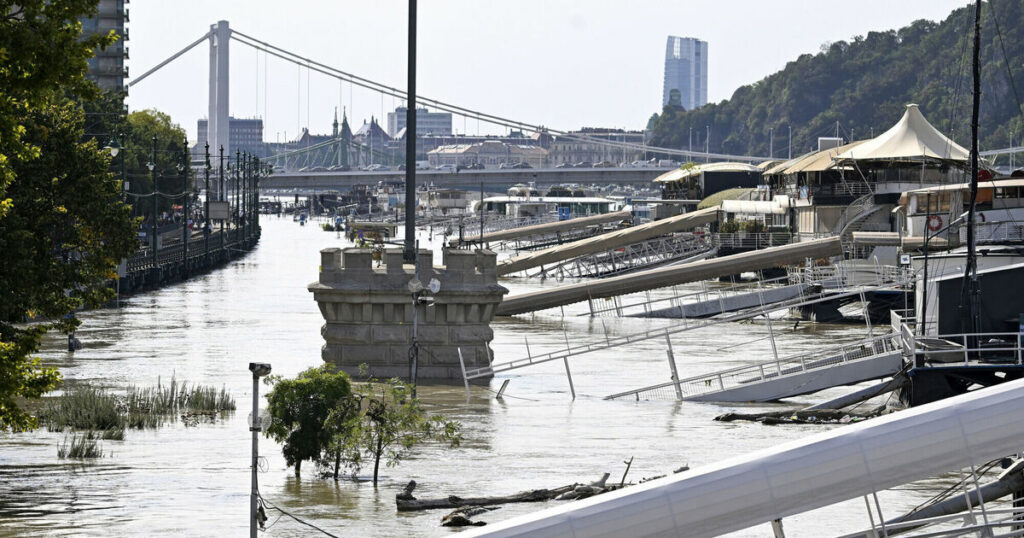The rains were made at least 7% stronger by climate change, World Weather Attribution (WWA) found, which led to towns being hit with volumes of water that would have been half as likely to occur if humans had not heated the planet.
“The trend is clear,” said Bogdan Chojnicki, a climate scientist at Poznań University of Life Sciences, and co-author of the study. “If humans keep filling the atmosphere with fossil fuel emissions, the situation will be more severe.”
Storm Boris stalled over central Europe in mid-September and unleashed record-breaking amounts of rain upon Austria, the Czech Republic, Hungary, Poland, Romania and Slovakia. The heavy rains turned calm streams into wild rivers, triggering floods that wrecked homes and killed two dozen people.
The researchers said measures to adapt had lowered the death toll compared with similar floods that hit the region in 1997 and 2002. They called for better flood defences, warning systems and disaster-response plans, and warned against continuing to rebuild in flood-prone regions.
“These floods indicate just how costly climate change is becoming,” said Maja Vahlberg, technical adviser at the Red Cross Red Crescent Climate Centre, and co-author of the study. “Even with days of preparation, flood waters still devastated towns, destroyed thousands of homes and saw the European Union pledge €10bn in aid.”
Rapid attribution studies, which use established methods but are published before going through lengthy peer-review processes, examine how human influence affects extreme weather in the immediate aftermath of a disaster.
The scientists compared the rainfall recorded in central Europe over four days in September with amounts simulated for a world that is 1.3C cooler — the level of warming caused to date by burning fossil fuels and destroying nature. They attributed a “doubling in likelihood and a 7% increase in intensity” to human influence.
But the results are “conservative”, the scientists wrote, because the models do not explicitly model convection and so may underestimate rainfall. “We emphasise that the direction of change is very clear, but the rate is not.”
Physicists have shown that every degree celsius of warming allows the air to hold 7% more moisture, but whether it does so depends on the availability of water. The rains in central Europe were unleashed when cold air from the Arctic met warm, wet air from the Mediterranean and the Black Sea.
Miroslav Trnka, a climate scientist at the Global Change Research Institute, who was not involved in the study, said when the conditions were right, “you can have floods on steroids”.
– Guardian
Source link : http://www.bing.com/news/apiclick.aspx?ref=FexRss&aid=&tid=66f3eba9765e4332a18e1e5739dc5ed8&url=https%3A%2F%2Fwww.irishexaminer.com%2Fworld%2Farid-41483011.html&c=6442437289053257620&mkt=en-us
Author :
Publish date : 2024-09-25 03:50:00
Copyright for syndicated content belongs to the linked Source.
